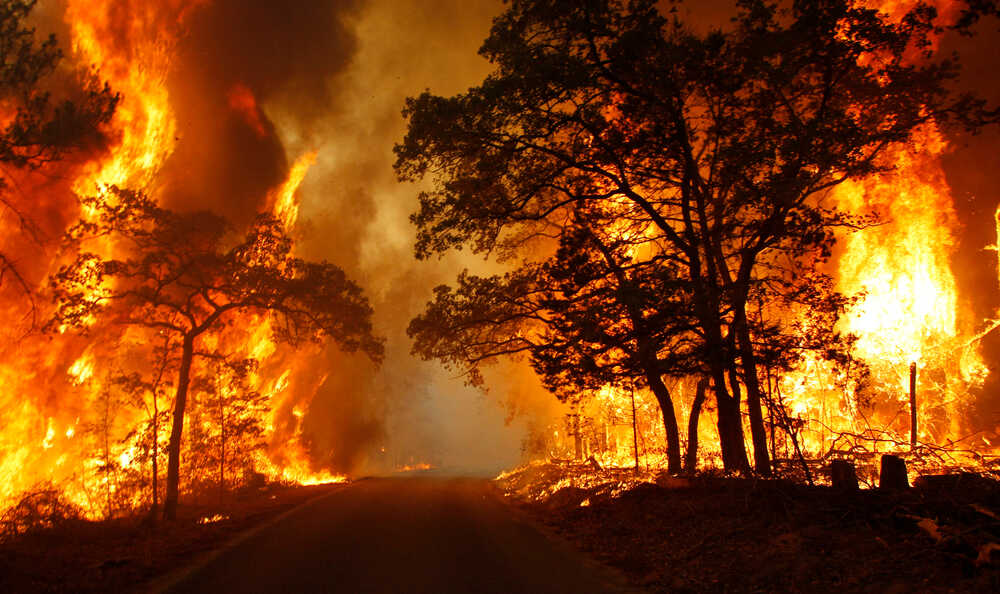As the temperature rises and the vegetation dries up during the summer months, the risk of wildfires increases. Wildfires can spread rapidly, posing a significant threat to life, property, and the environment. It’s essential to take steps to prevent wildfires and know how to respond if you encounter one.
Preventing Wildfires:
- Clear Vegetation: One of the most effective ways to prevent wildfires is to clear vegetation from around your home and property. Create a defensible space by removing dry leaves, grass, and shrubs within at least 30 feet of your home. Keep the area well-maintained and debris-free, including dead branches and fallen trees.
- Be Cautious with Outdoor Activities: Be cautious with outdoor activities that can potentially start a fire, such as campfires, fireworks, and outdoor cooking. Always follow local fire regulations and guidelines. If you are planning to have a campfire or use a barbecue, ensure that you are in a designated area and have proper tools, such as a fire extinguisher and a bucket of water, nearby to extinguish the fire if needed.
- Properly Dispose of Cigarettes: Never throw cigarettes or other smoking materials out of a vehicle or discard them in a dry, grassy area. Always extinguish cigarettes in designated smoking areas or proper ashtrays.
- Maintain Vehicles: Properly maintain your vehicles, including lawnmowers, trimmers, and other equipment with internal combustion engines. Keep them in good condition and avoid using them in dry, grassy areas, especially during hot and windy conditions when the risk of wildfires is high.
- Stay Informed: Stay updated with the latest information about wildfires in your area. Follow local news and weather updates, and be aware of any fire warnings or evacuation orders issued by local authorities. Have an evacuation plan and know multiple escape routes in case of a wildfire.
Responding to Wildfires:
- Call Emergency Services: If you spot a wildfire, immediately call emergency services and report the fire. Do not attempt to extinguish the fire unless it is safe and you have proper training and equipment.
- Evacuate if Instructed: If local authorities issue an evacuation order, follow it promptly. Leave the area immediately and take only essential items with you. Follow designated evacuation routes and avoid congested areas. If you have time, turn off gas and propane tanks, close windows and doors, and leave outside lights on for visibility.
- Stay Informed: Stay updated with the latest information about the wildfire’s status and evacuation orders. Listen to local news and authorities for updates and instructions. Only return to the area once it is deemed safe by local authorities.
- Protect Your Health: Wildfires can produce smoke and ash that harm your health. Stay indoors and close all windows and doors if you are in an area affected by smoke. Use air purifiers and avoid outdoor activities until the air quality improves.
- Cooperate with Firefighters: If you encounter firefighters or other emergency personnel, cooperate with them and follow their instructions. They are trained to handle wildfires and are working to protect lives and property.
In conclusion, preventing and responding to wildfires requires preparedness, vigilance, and cooperation with local authorities. By taking proactive steps to prevent wildfires and knowing how to react if you encounter one, you can help protect yourself, your loved ones, and your community during the summer months when the risk of wildfires is high. Stay informed, follow fire safety guidelines, and be prepared to act quickly in a wildfire emergency.



